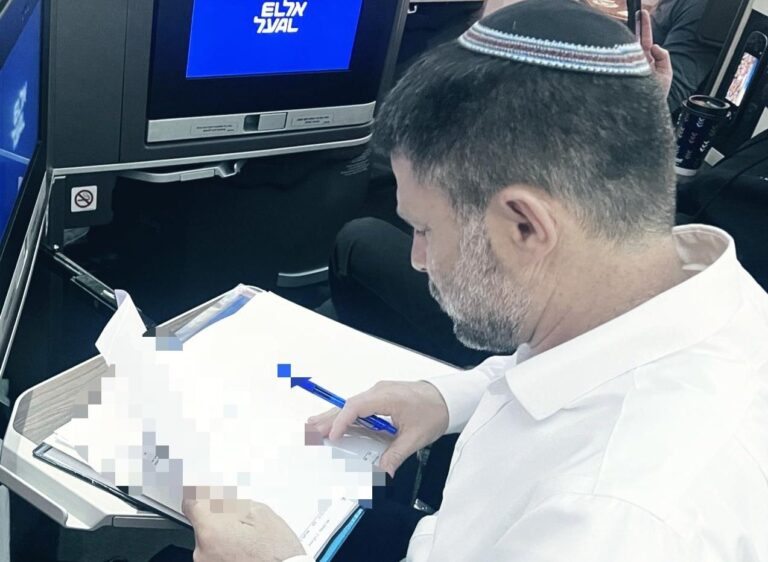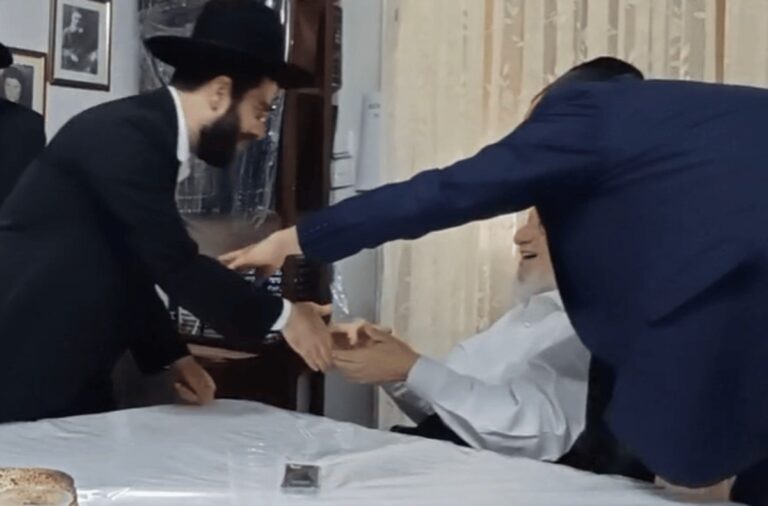 [By Rabbi Yair Hoffman]
[By Rabbi Yair Hoffman]
There is a uniquely American idiom that is reflective of a growing problem within the Torah community. The idiom is “the squeaky wheel gets the grease.” Applied to this growing problem, the idiom means that the Tzedaka organization with the best PR gets the money. Some tzedakos have full-color 16-page brochures filled with stories about what a wonderful tzedakah organization it is. Some organizations have parlor meetings in the homes of local Gvirim. Do these organizations have precedence over our local yeshivos? Where does one’s brother-in-law who works in chinuch fit in to all this? What are the best tzedakahs in terms of halachah? Do the poskim enumerate an order as to which tzedakos or which aniyim (poor people) we should give to first?
Of course, one should always consult one’s Posaik or Rav in regard to any matter of halachah, but the following based upon a work by Rav Avrohom Moshe Zemmel, entitled “Ahavas Tzedakah,” provides us with a wonderful general guideline in how to distribute Tzedakah. One may wish to print out this overview for further consultation when distributing Tzedakah.
There are three types of tzedakah where the phrase “kodemes lakol” (it precedes everything else) is employed. The three types are:
1. Charity given to a Torah educational institute whose very existence is threatened with closure and the future of Torah for K’lal Yisrael, the Jewish People, is at stake. There are only three things for which we must sacrifice our lives—to avoid the sins of murder, arayos, and idol worship. Yet we see that Rabbi Akiva sacrificed his life in order to teach Torah. How could this be? The answer is that it involved the future of Torah for the Jewish People. (This is based upon the words of the Birchas Shmuel in his introduction to tractate Bava Basra.)
2. Charity given to save a Jew from conversion in a situation where it is permissible to violate the Shabbos in order to save him (see Orach Chaim 306:14).
3. Charity given to save a life—or to possibly save a life—i.e., pikuach nefesh.
Regarding charity for the poor, the precedence is as follows:
• A poor person who is a relative receives precedence over a poor person who is unrelated. (Of course, if he will starve, the hungry poor person comes first.) A related poor person takes priority over the unrelated poor person even if the unrelated one is a Torah scholar (see Rabbi Akiva Eiger, Y.D. 251:3).
One may ask, which relative “beats” the other relatives in a “claim” for charity? Are there criteria as to which relative should be supported first?
The answer, of course, is, yes.
• The first relative that deserves one’s charity is yourself. If you cannot make a living, you should not be giving to others before yourself. This is based upon the pasuk “V’chai achicha imach—and your brother shall live with you”; your existence comes first (Tur, Yoreh Deah, chapter 251, citing Rav Saadya Gaon).
• The next relative is one’s parents. A father and mother come before anyone else.
• A son and daughter come next.
• A brother and sister come next.
• A paternal sibling comes before a maternal sibling.
• One’s spouse’s relatives come before strangers.
• One’s ex-spouse comes before others (see Rema 119:8).
• A talmid chacham (Torah scholar) non-relative precedes a non-relative who is not a talmid chacham, even if the talmid chacham is not from one’s own city.
• Unrelated poor people from one’s own city precede poor people from another city—but not when the poor of another city have greater needs (see Y.D. 251:3 and Responsa Chasam Sofer Y.D. 234).
• The poor of Eretz Yisrael have precedence over the poor of another city, but not over the poor of one’s own city (see commentaries of Shach and Bach, Y.D. 251:6).
This last criterion is key. According to most poskim our local charitable cases beat out the poor of Eretz Yisrael. This would mean that the local Davis Memorial Fund would have precedence over the Israel charity cases. (There is, however, an opinion of the Debreciner Rav’s older brother, the BeTzel HaChochmah [Vol. IV, 163:16] that there are two mitzvos involved regarding the poor in Israel: the mitzvah of settling the Land as well as the mitzvah of tzedakah. He opines that the poor of Israel would beat out the poor in our own city. One should consult one’s rav, but the simple answer seems to be like the Shach and Bach, that the local poor people have precedence.)
What about where we have two equal relatives? Is there another criterion that comes into play? For example, if one has two siblings, both in need of assistance, which one comes first?
• The one who is a greater Torah scholar receives precedence over the other.
• The next criterion is based upon gender; a sister’s needs take precedence to a brother’s.
Are there different grades of talmidei chachamim? In other words, if there are two Torah scholars and one of them has a much wider breadth of knowledge but the other has a deeper breadth of knowledge, who precedes the other? The Vilna Gaon (Shulchan Aruch 251:18) cites the Talmud Yerushalmi that the breadth-of-knowledge scholar receives precedence to the depth-of-knowledge scholar.
It is important to note that one should make every effort possible to avoid supporting one’s parents with tzedakah money. The Gemara tells us (Kiddushin 32a) that a curse should come upon a person who supports his parents through money that is destined for charity. This means that the money he should spend on them should be aside from money that he should give to charity. Of course, if there is no other option—if he cannot afford to give both—then there is nothing wrong with giving to his parents. The Talmud is only referring to a case where a person could have afforded to do otherwise.
There are also other criteria for priority of tzedakah:
• Pidyon shvuyim (redeeming captives) is primary.
• Supporting a mikveh, in a place where there is no other mikveh and there is a chance that people will stumble in prohibitions that involve kareis—takes precedence over supporting a yeshiva.
• Charity so that children can study Torah is next (i.e., a yeshiva).
• There is a debate as to whether tzedakah to run the day-to-day activity in the beis ha’knesses (for example, the electricity bill) receives precedence over tzedakah to poor people. The Shulchan Aruch (Y.D. 251:16) rules that the synagogue needs come first, while the Vilna Gaon (Y.D. 251:20) rules that the poor people receive precedence. Clearly, everyone agrees that it is only the day-to-day activities being discussed and not the building fund (see Aruch HaShulchan, ibid). Indeed, Rav Vosner questions how some institutions can be requesting tzedakah funds to build beautiful edifices when there are poor people who are literally starving.
• The issue of need is also important. If one person needs money now while another needs it later, Rav Moshe Feinstein writes that the more pressing need takes precedence (Igros Moshe, Y.D. Vol. I, No. 144).
The bottom line is that tzedakah precedence and the decision of who to give to is not something that should be approached flippantly or without thought. Tzedakah is a limited resource (and, with the current financial crisis, it appears that it will become even more limited). One should keep in mind that there exist halachic criteria as to which receives precedence.
One last thought: Tzedakah should be given lishmah, with the best of intentions. It should not be done to impress anyone else—whether they be friends, family, or one’s rav or poseik. It should also be given b’seiver panim yafos—with a smile.
The author can be reached at [email protected]











3 Responses
One important point that wasn’t mentioned. According to many poskim, supporting your personal shul’s basic necessities must come from personal money not from tzedakah money.
I wish I could afford a nice color brochure. All I would ask for is a hot bowl of soup (with a slice of bread, if available) and an all expenses paid Orlando Passover vacation for the family to have Seder with Mickey Mouse. I know it’s available and popular because I saw it advertised in a nice color brochure. But right now, I’d settle for the soup. Heavenly messages are so misunderstood in these difficult times so I thank the
Chesed Police for listening.
This would appear to be an area where the giver’s own personal feelings and needs should trump any strict hierarchy or prioritization established by rabbonim. We risk having yidden who do not feel warmly about one of the higher ranked charitable causes not to give at all since they don’t want to feel they’ve violated a strict requirement as to whom they must give (i.e. my talmid chacham, professional learner son-in-law who treats my daughter poorly and won’t get a job over my somewhat nebishdike but sweet nephew who tries to learn at night or early in the AM while holding down two part time jobs to support his yinglach.